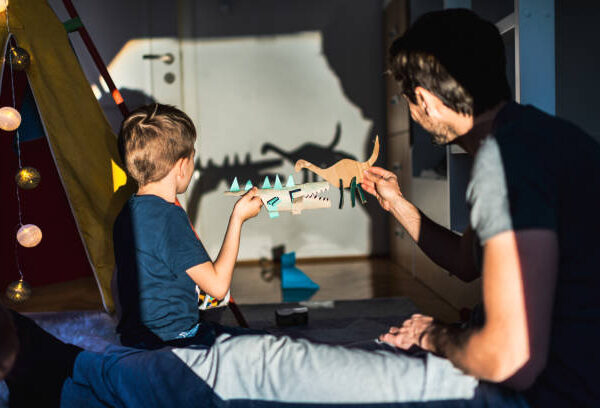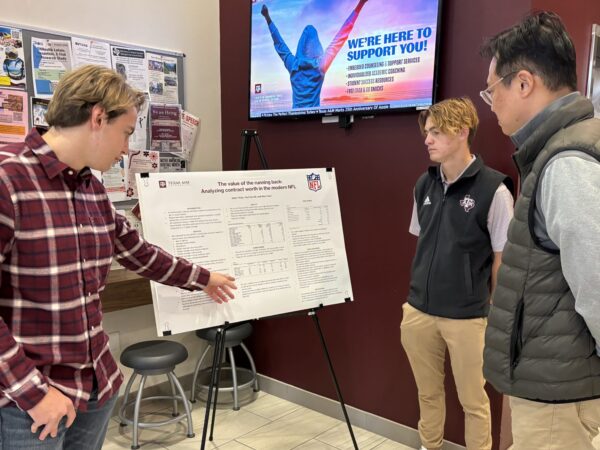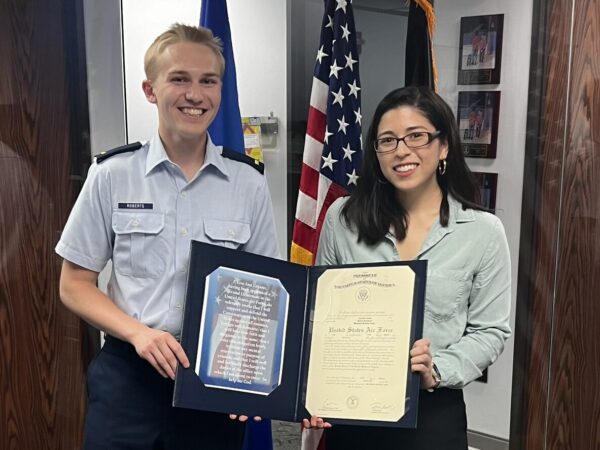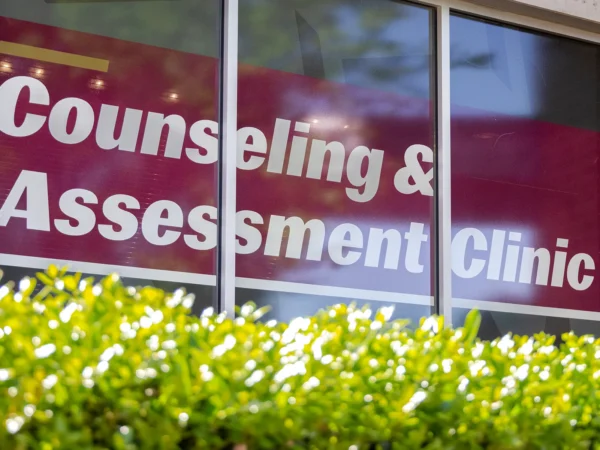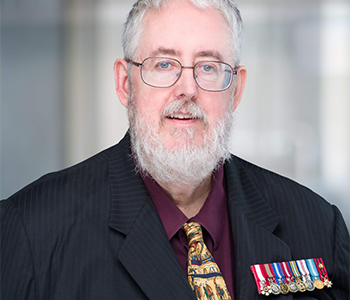How online gaming can possibly help mental health, CEHD researcher finds
According to the Entertainment Software Association in 2018, approximately 65% of Americans play some sort of video game daily. With the rise of technology and lack of in-person interaction due to the COVID-19 virus, people have started to search for personal connections through video game online networks.
As video game popularity continues to rise, several public health concerns, such as increased risk for isolation and increased risk for depressive symptoms (DS), have started to develop.
Dr. Tyler Prochnow, social network analysis expert in the Department of Health and Kinesiology, and his team are investigating the networks established through online gaming sites and their possible association with depressive symptoms (DS) and social support.
In this study, Prochnow focuses on an online football game simulation, monitoring the conversations between 40 participants to see if they talked about DS, lack of in-real life support (IRL), or other important life matters.
“The game is all online and text based, and it assesses how individuals are communicating with one another, whether that be meeting each other, discussing things online, reaching out to each other for in-game help, or for help with real life issues,” Prochnow says. “We wanted to see how this communication impacted their feelings of support, their sense of community online, but also their depressive symptoms and their mental health.”
What do these conversations look like?
He says individuals who are lacking IRL support are more likely to reach out to others in online gaming situations. These connections through online gaming appear to possibly supplement support from other areas.
“These individuals might feel more comfortable being their complete self around these individuals online because there’s no risk of blow back to their close social support networks in “real life,” Prochnow says.
When gamers choose to confide in individuals online about a difficult situation, they are often seeking unprejudiced or unemotional advice about what they should do, because they’re not completely tapped into a social circle.
Oftentimes these online relationships have developed over years of time, therefore it creates this sense of safety and trust for individuals to share information that they might not share to people in their outside life.
Is this type of communication positive or negative?
Overall, Prochnow explains that there is a clear correlation between real life support and mental health. The lack of in-person support is associated with lower mental health and greater depressive symptom scores.
Even when gamers felt that they created a strong online support system, it does not supplement their in person interactions. However, there are also a lot of positives for gamers seeking connection on video gaming sites.
“There was this large buildup of worry or concern over online gaming or excessive gaming and mental health, but we wanted to continue that discussion about how online gaming in these gaming communities can actually be a benefit for individuals and to improve mental health,” Prochnow says.
He explains that these online gaming networks give individuals an outlet for when they need advice or someone to reach out to. With the stigma on mental health and gaming, it is important that people feel they have a safe place to seek help or connection.
“My advice for individuals in the gaming community would be don’t hesitate to make some of these stronger connections to facilitate conversations online, because if you are thinking about asking someone for help or thinking about talking to someone online about some of these things, chances are, they might be as well,” Prochnow says.
What’s next for the gaming community?
As for now, Prochnow says that there is still a significant gap for individuals that are not getting support in real life and are looking to supplement it online. While the online network for the gaming community is important, he believes that it should not substitute in person support.
There is much progress being made with mental health and breaking the gaming stigma, but Prochnow hopes to increase the in person aspect of the gaming community’s lives.
“Our goal is to offer more in person meet and greets for the community where the gamers can come together and extend that social support network outside of just the online system,” Prochnow says.
To learn more about Dr. Prochnow’s research, watch his most recent Voices of Impact speech here.
About the Writer
Emily Knight is a writing assistant for the Marketing and Communications office in the College of Education and Human Development. She is a senior in the Agricultural Communications and Journalism program at Texas A&M.
Articles by EmilyFor media inquiries, contact Justin Elizalde.


